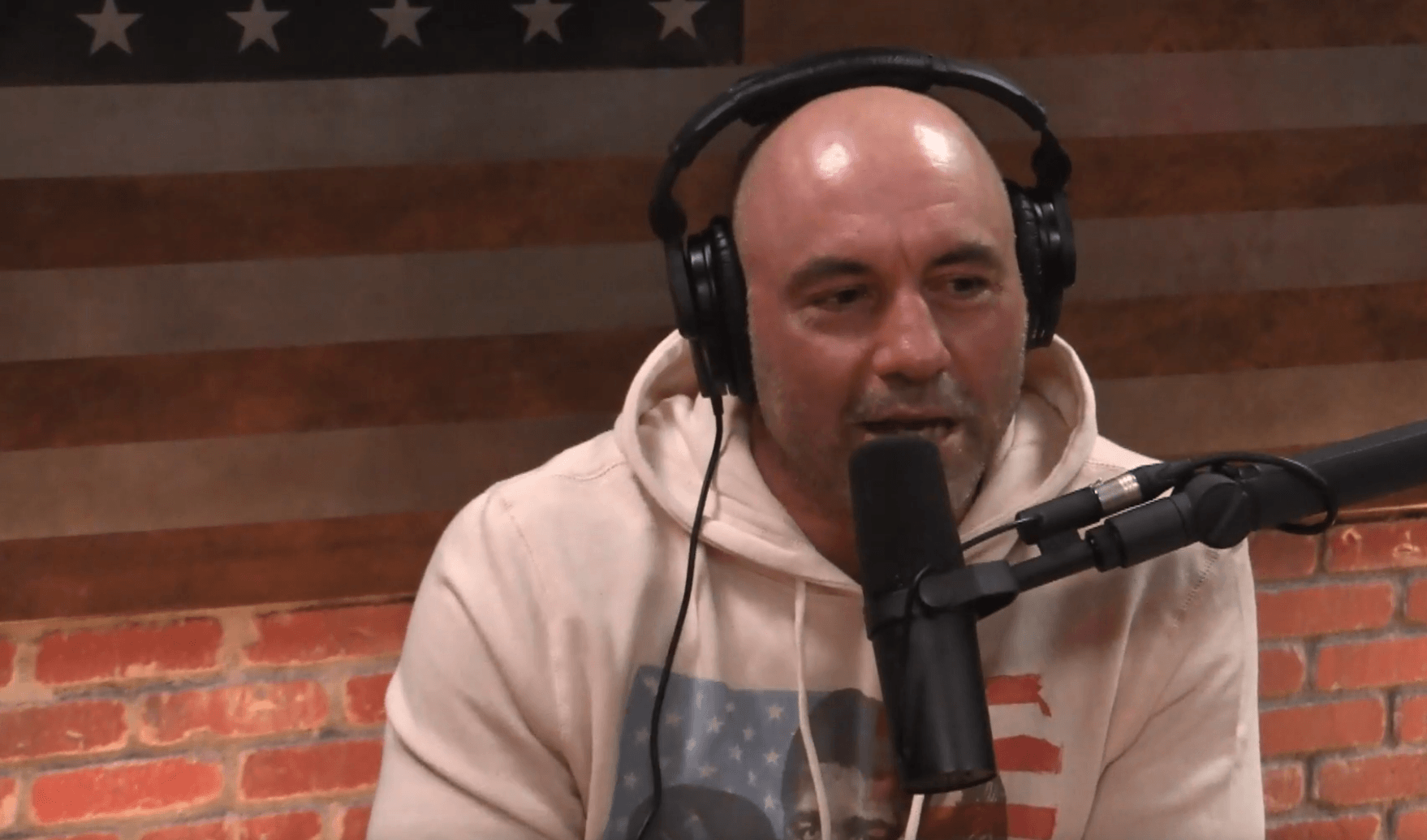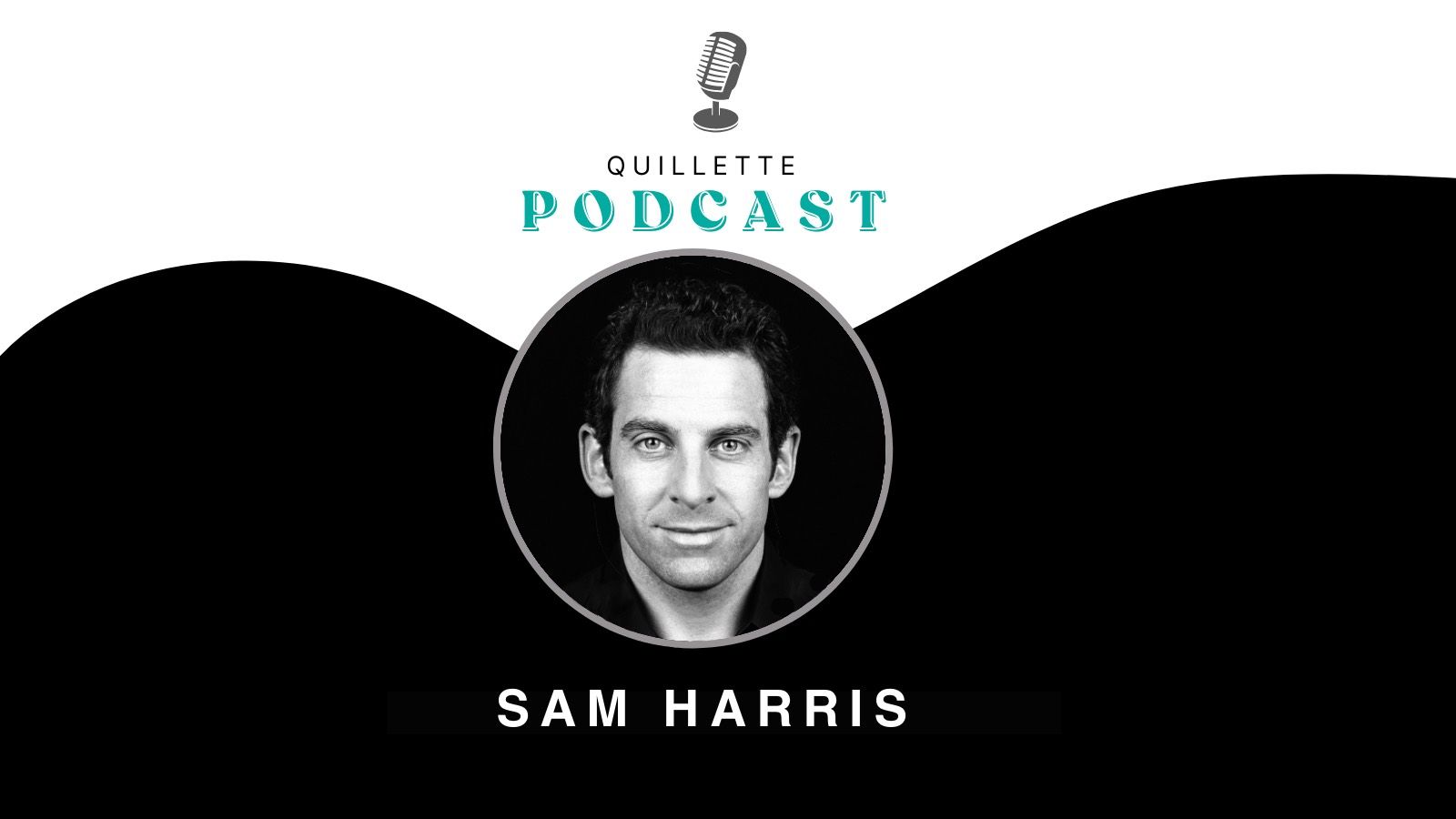Joe Rogan
Joe Rogan is the Walter Cronkite of Our Era
Our faith in a cadre of well-trained media professionals, able to set aside their biases to report on and analyze the big stories of our age, hasn’t just eroded.

It is always tempting to believe that we live in historic times. It strokes the ego to think that decades from now, people will look back on current events as the starting point of some dramatic, epochal change. As a comedian, professionally cynical and distrustful of epic narratives, I usually dismiss such notions as the delusions of grandeur of an increasingly narcissistic generation. Yet as I sat glued to my computer last week, watching Joe Rogan and Tim Pool interrogate Twitter CEO Jack Dorsey and Vijaya Gadde (the company’s global lead for legal, policy, and trust and safety), I could not shake the feeling that I was witnessing a historic moment.
It has long been an open secret that the mainstream media (MSM) is dying. Of all America’s major institutions and industries, only the U.S. Congress is trusted less by the public than the media. The MSM’s one saving grace was its ability to engage in high-end, investigative journalism by pouring millions of dollars and thousands of man-hours into complex, wide-ranging and secretive operations in the hope of uncovering political and corporate malfeasance.
And yet, as I joined over a million people in watching Tim Pool grill Twitter executives under Rogan’s watchful eye for three-and-a-half hours it struck me that even that one argument in favor of the MSM is no longer valid: not one established newspaper or broadcaster can now compete with a popular YouTube host conducting a conversation from his self-funded studio.
Our faith in a cadre of well-trained media professionals, able to set aside their biases to report on and analyze the big stories of our age, hasn’t just eroded. We no longer have any confidence that such impartiality is possible. Into this breach have stepped the YouTubers and podcasters who clearly and openly state their biases, who do not pretend to be impartial but rather acknowledge their ideological starting points and then seek to have good-faith discussions with people from across the spectrum.
More damagingly still, just as the people have lost our faith in the media, the media has also lost faith in us. The average duration of a TV soundbite has shrunk from minutes in the 1960s to a handful of seconds today. The big feet of the media increasingly believe that we are too busy, stupid or, at best, uninterested to pay attention and they have addressed this by feeding us a nauseating diet of informational cocktail sausages when what we really crave is a side of beef. The success of long-form publications like Quillette and YouTube shows like the Joe Rogan Experience and the Rubin Report is a testament to our desire to move away from the political talking heads, screaming over each other like children in a playground. We want grown-up conversations and we will reward the people that bring them to our screens.

Another distinction between the MSM and new media is the incredible gulf between them in accountability. Rogan spoke to the Twitter CEO only weeks earlier, prompting a fierce backlash from his fans over a lack of preparation and the perception that he pussyfooted around instead of taking Dorsey to task for Twitter’s leftist bias and unfair treatment of conservative voices. Unlike the world’s leading publications, which frequently cover up or even double down on their failings—the Covington kids story, the Jussie Smollett hoax—Rogan acknowledged his faults and not only invited Twitter executives back, but also brought along an expert to question them. It is worth noting that Tim Pool was picked not only for his knowledge but also because he had criticized Rogan himself. Podcasters and YouTubers are vulnerable to their audiences in a way that monolithic media institutions are not. This vulnerability makes them responsive: it is a strength, not a weakness.
It says something about the shift in the balance of power that the CEO of one of the world’s largest tech companies feels the best way to address the concerns of his customers is to appear on Rogan rather than write an opinion piece in a major newspaper or give a TV interview to a network talk show.
No television channel in the world would set aside three-and-a-half hours for an interview—and to do so live would be unimaginable. More tellingly, no CEO would volunteer for a public grilling of that length on live TV. Jack Dorsey was willing to speak to Rogan and Pool because he could expect a fair hearing, something the MSM no longer offers.
While Dorsey’s and Gadde’s answers were not always satisfactory, one of the most powerful moments in the conversation was Gadde admitting that Twitter has room for improvement and thanking Pool for the “feedback.” Even though her answer was mocked extensively (and hilariously) online, a response of this kind would never have happened on the mainstream media.
As we saw in Jordan Peterson’s infamous interview with Cathy Newman, the MSM doesn’t see its job as teasing out the truth. Instead, it’s all about gotcha journalism, promoting orthodoxy and expressing faux outrage whenever anyone departs from it. This abrasive, combative style backs the interviewee into a corner, making them defensive rather than honest.
While Rogan should be commended for creating the space for this conversation and Pool deserves kudos for his tenacious questioning, credit should also go to Dorsey for offering himself and his company up for public scrutiny. The discussion was not perfect and we don’t know what effect it will have on Twitter’s policies, but conversations like this can reduce the temperature of our increasingly frenzied, polarized politics. We know we can’t trust the old media to deliver that soothing balm—let’s hope the new media can.






